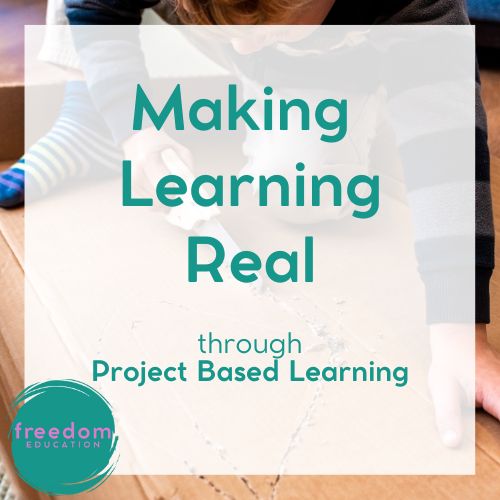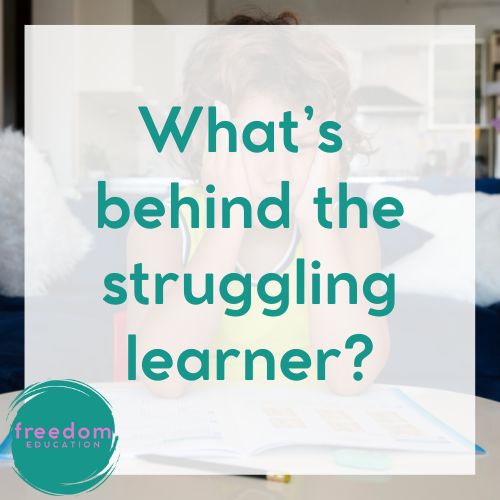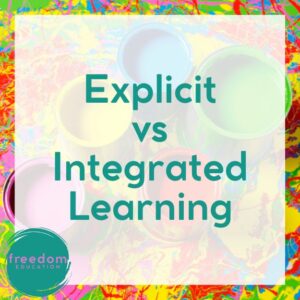
7 Tips to Begin Increasing Learner Agency
So you want to provide more agency for your learners? A great idea. Increasing agency develops self-managing learners, increases engagement, and gives you more time to teach.
The information in this blog post was originally put together for teachers enrolled in the freedom ed Ditch the Tumble digital course however I understand it could be useful for those not quite ready to take the leap into the course just yet.
Whether it is the start of the year or part way through, the below 7 tips will have you making a positive start to increasing agency in your classroom in no time. Several of the tips are based on resources available as part of the course mentioned above and others you can action immediately. Of course, if you know you already want the support of my online digital course then click here and get yourself enrolled.

1. Check your mindset
Increasing agency really is all about YOUR mindset. Four main ideas to think about.
Classroom control – You NEED to share this as much as possible.
Key Competencies – You NEED to see these as important learning areas that require explicit teaching/learning. Managing Self is agency in a nutshell.
Curriculum Learning – You NEED to see the importance of not only explicitly teaching curriculum areas but also integrating these to allow for the more realistic application of learning.
Evidence of Learning – You NEED to ensure you place value on the learning process over the learning product. Having 26 identical products for the wall does not necessarily equal high learning or high agency.

2. Setup your class for agency
This is all about walking the talk. Do you know why passion projects or genius hours don’t work for some teachers? It is because they are ONLY giving agency at these times. The majority of a learners’ week they are directed by the teacher then all of a sudden for this “time” expected to self manage and show agency. To achieve success you need your class to be set up to live and breathe agency.
Think about your setup and organisation. Are you setting up your procedures and routine with a focus on agency? Take a moment to really look around. Can learners access resources easily? Can the go to the toilet when they ask? Choose where to learn?

3. Start on day one
Don’t wait. If it is the start of the year don’t confuse your bright-eyed new learners by waiting to “start” when you don’t need to. If it’s the middle of a term or year then that’s all good but start NOW, don’t wait. As long as you have the right mindset there really is no reason not to get started straight away.
Day one – set say 3 tasks and a timeframe to do all three. Give time checks to help and make tasks easy so learners focus on self-management, not the learning itself. At the start of a year these might be tasks such as a getting to know you survey, creating a label for their tote tray, and reading from the class library.

4. Start small
Remember many of your learners might be new to this. They, and you, might have had several years in a predominantly teacher directed environment. Start small giving agency over a couple of things at a time or a short block of time at once. Don’t try and jump ahead until they have got the basics sorted as this will make your life harder down the track. The basics isn’t just the setup it is understanding what they are learning and managing their time effectively.
Keep in mind the “walk before you run” saying.

5. Set Expectations
Set expectations with your learners from early on. Again make these expectations small so progress can be seen and success can be experienced. Once learners can show they are meeting expectations independently and consistently every day then you can increase the expectations along with the amount of agency.
Early expectations might include moving away from someone if you aren’t managing to stay focused, reading the clock or setting a timer and following the task instructions.

6. Question Question Question
You are trying to move away from doing everything for your learners so stop telling them how to improve, what to do or how to do it. Question them. Ask questions before, during and after a task to prompt their thinking about self management, and learning.
What do you think you will learn from doing this task? How long do you think it will take you? What resources will you need? Who could help you? What did you learn? Where to next?
It can be harder than you think to change the way YOU prompt learners but is so worth it.

7. Teach Less, Guide More
I know it is tempting to want to get stuck into taking groups and workshops. BUT DON’T. One of the huge benefits of having an increased level of agency in the classroom is more learning rather than busy work or off-task behaviors. To develop this however your learners NEED you!
You don’t need to make it all the way to ninja level before teaching but you do need to spend a decent chunk of time dedicated JUST to supporting learners as they develop. You are “teaching” key competencies. You are “teaching” problem-solving. You are “teaching” time management. Just because you aren’t “teaching” curriculum content doesn’t mean they aren’t learning.
So, What are you waiting for?
Go forth and enjoy. Bring the fun and engagement back to learning and experience the awe as your learners start to take charge themselves. The below FREE cheatsheet can be downloaded, printed and put somewhere in your classroom to help remind you of where to start on your agency journey. Inside our freedom ed™️ membership you will also find our signature Ditch the Tumble course which gives you further support and resources to putting the above into practice.
**This blog post was edited from the original written on www.sharewithus.co.nz






